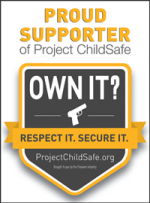For years, we have been told that we needed background checks on firearm purchases to reduce criminal misuse, even though even Johns Hopkins Bloomberg School of Public Health determined they had no effect on crime in California. The researchers involved in that study admitted they were "puzzled" at the outcome. I guess they set out to find out why because they have come out with a new study that says background checks must be coupled with gun licensing to be effective. From the Crime Report:
For the study, the researchers compared four statistics—firearm homicide, non-firearm homicide, firearm suicide, and nonfirearm suicide rates.Then they looked at Maryland and Pennslyvania:
What they found was striking, the authors wrote.
“Connecticut’s purchaser licensing law, enacted in 1995, was associated with a 28 percent decrease in firearm homicide rates and a 33 percent decrease in firearm suicides from 1996 to 2017,” the researchers found.
The researchers also found that Connecticut’s suicide rates fell 23 percent from 1996 to 2006, and even more drastically — 40.5 percent — following Connecticut’s law that allows law enforcement to temporarily remorse firearms from individual’s possession if they threaten to harm themselves or others.
For the study, the researchers compared four statistics—firearm homicide, non-firearm homicide, firearm suicide, and nonfirearm suicide rates.
What they found was striking, the authors wrote.
“Connecticut’s purchaser licensing law, enacted in 1995, was associated with a 28 percent decrease in firearm homicide rates and a 33 percent decrease in firearm suicides from 1996 to 2017,” the researchers found.
The researchers also found that Connecticut’s suicide rates fell 23 percent from 1996 to 2006, and even more drastically — 40.5 percent — following Connecticut’s law that allows law enforcement to temporarily remorse firearms from individual’s possession if they threaten to harm themselves or others.
But Maryland and Pennsylvania’s data doesn’t reflect this positive outcome, mainly because their states don’t have purchaser licensing laws — they only operate with CBC laws.The next line in the story tells you all you need to know about this study because it betrays the fact that the researchers were not disinterested individuals looking to find out what happens in certain circumstances. No, they have an agenda.
Maryland’s 1996 implementation of background check laws have been associated with a 17.5 percent increase in firearm homicide rates from 1997 to 2013, and Pennsylvania’s 1996 CBC implementation is associated with a 21.5 percent increase in homicide rates.
On the other hand, the state of Missouri once had purchaser licensing laws, but repealed them in 2007, creating a spike in gun violence.
After the 2007 repeal, the researchers found that there was an estimated increase in firearm homicide (47.3 percent), nonfirearm homicides (18.1 percent), and firearm suicides (23.5 percent).
Put another way, the estimated percentage increase of firearm homicides occurring after the purchaser licensing laws were repealed translates to between 55 and 63 untimely deaths per year in Missouri, CBS News reported.
Despite the states that have CBC law implementation, the authors write these spikes in gun violence deaths are consistent with a growing body of evidence that shows CBC laws are not effective in curbing firearm deaths — unless they’re coupled with purchaser licensing laws.
The authors recommend that other states across America should look into implementing purchaser licensing laws, which they deem “necessary.”
I added the emphasis on "necessary". Don't be surprised if you see a licensing bill pop up at the General Assembly in 2021.








No comments:
Post a Comment